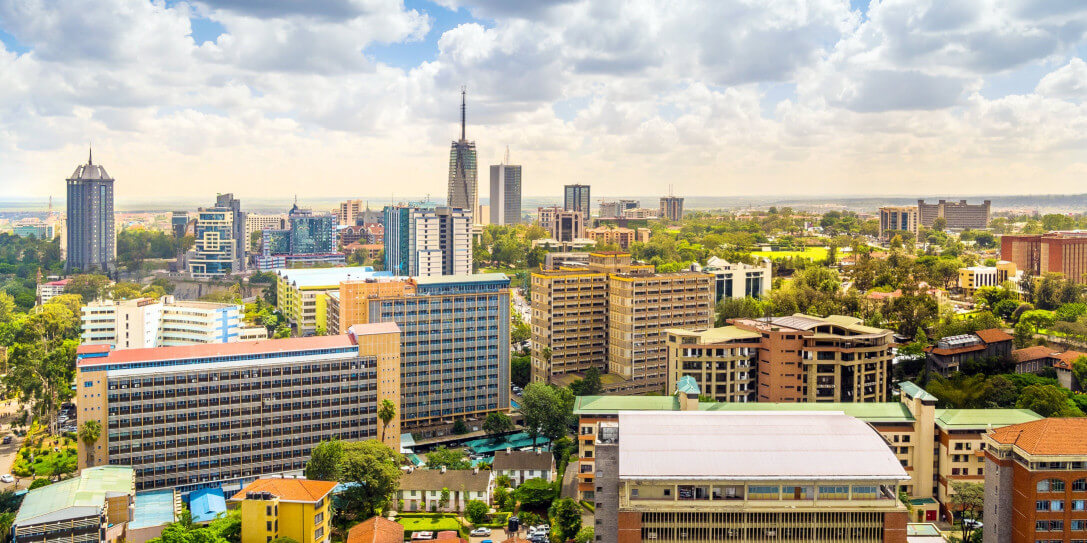
Kenya’s halal food industry expands amid regulatory challenges
The halal food market in east Africa’s economic hub is growing, say experts, although reforms in regulation and certification are needed to underpin the sustainability of this growth.
Nairobi: As elsewhere Covid-19 hit food service sales in Kenya, and that included halal outlets, “but this has changed, and the demand is now picking up," said Eugene Jernigan, director of International Trade Policy and Development at the Action Green for Trade and Sustainable Development (AGTSD) organisation, which serves small businesses in Kenya.
Jernigan told Salaam Gateway that the uptake of halal products has been growing steadily across Kenya, boosted by the establishment of a reputable food standard for halal products, especially meat and poultry products, operated by the Kenya Bureau of Halal Certification (KBHC).
This has strengthened sales by Muslims in Kenya who make up 11% of the country’s 55 million population. But halal food has been increasingly embraced by the population at large, more than 85% of whom are Christian, said Tony Watima, an economics consultant based in Nairobi. Jernigan agrees: “A lot of data is lacking but a casual observation of the food markets, restaurants, hotels, and shops show that many are adhering to halal standards.” He added that imports of certified halal foods have also boosted confidence in the local market.
Kenyan halal food manufacturers have been developing overseas markets in the Middle East, Asia, North Africa, Europe and Australia, Jernigan added. He predicted that as the African Continental Free Trade Area (AfCFTA) is rolled out in 55 African countries–removing local barriers to trade– more Kenya halal products would be sold across Africa.“The future of the halal market is quite promising,” he said.
More and more halal restaurants are opening in major cities and towns in Kenya, said Watima: “These restaurants are not only for Muslims, but we are seeing many Christians buying this cuisine. Increased demand keeps these restaurants alive and is attracting new outlets.”
Sheikh Badru Jaffer, a sharia scholar and member of the sharia board for Kenya’s DIB Bank Kenya Ltd said sales of halal food lines in the country have been growing and Muslim staff, including halal practitioners are often present in slaughterhouses, even in areas where there are few Muslims. He added that Kenya’s ministry of tourism and wildlife has been pushing the development of halal food service kitchens to augment supplies for halal package safaris and exhibitions attracting Muslim delegates: “This means the prospect of the sector is bright,” he said, adding halal good businesses were benefiting from the growth in Islamic financial services within Kenya.
Mgeni Hamisi, a food scientist at Kenya Bureau of Halal Certification (KBHC) said demand for quality food is driving growth for halal meat in Kenya because local consumers think halal livestock is reared and slaughtered with care. “Initially people didn’t care about how carcasses were handled before they ended up on their plate. This has caused many health complications. Nowadays more Kenyans want to know how a cow was slaughtered and handled and this is driving uptake,” she told Salaam Gateway.
This reputation has increased demand for halal certification to spread from meat and poultry to dairy, cooking oil, confectionery and even flour, she said. The bureau has certified more than 150 Kenyan companies since 2007, ranging from abattoirs, catering facilities to food processing outlets, she said.
Despite this positive growth, the expanding halal sector could improve its performance, experts argue. According to Watima, a lack of investment in research and data has been hindering growth. “Market research and data helps test market viability and drive investment from an informed point of view,” he said. The sector was being reactive by basing halal purchase projections on past consumer purchasing habits rather than anticipating future market development through analysis, he added.
Umi Wabomba, who runs the Islamic gift shop Hijara Duka, in Nairobi, said confidence in halal was undermined by some slack standards, notably in logistics and final preparation.
“Many consider only the final food product as being halal. Yet the whole process of ingredients, production, transportation, storage and distribution has to adhere to halal standards,” said Wabomba. “Even if the meat is slaughtered in a halal way but during transportation and storage it gets contaminated [maybe by being stored neat pigmeat] then it becomes haram,” she explained.
Another problem is that some hotels claim to offer halal food, but also stock alcoholic drinks or lack a separate halal kitchen, generating concern that halal food could be contaminated with haram food prepared in the same kitchen.
Jernigan said Kenya lacked national standards, certification, branding, labelling and packaging rules for halal foods, increasing the cost of doing business and complicating export compliance. “There is also inadequate training for those who handle halal products and marketing,” he added. He called on the government to forge a coordinated approach to developing the halal food market, notably acting to aid the preservation integrity of the halal products supply chain.
Wabomba agreed that Kenya needed to regulate and standardise halal specifications, creating a level playing field for all halal suppliers and sellers. “At the moment, there is no reference point to counter check if businesses are following due process,” she said. “There is also a need to challenge the misconception that halal is only food-related. Halal is a lifestyle and other services in Kenya could and should follow halal principles, including banking, insurance, pension schemes among others,” she added.
© SalaamGateway.com 2021 All Rights Reserved

Ramadhan Rajab